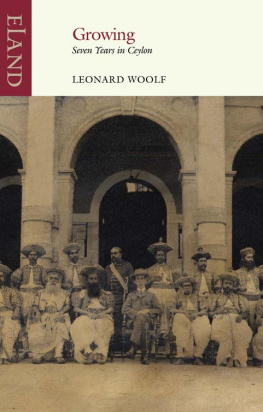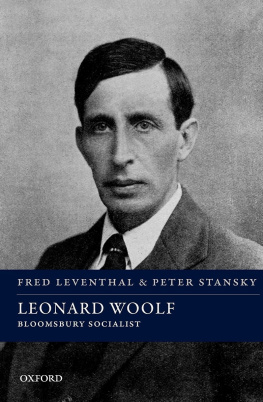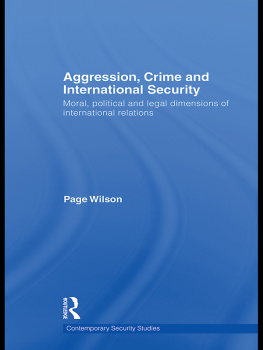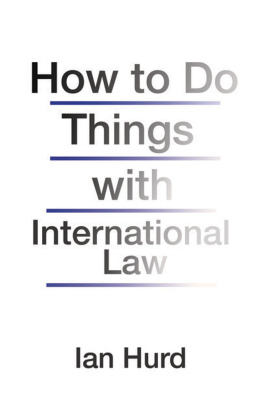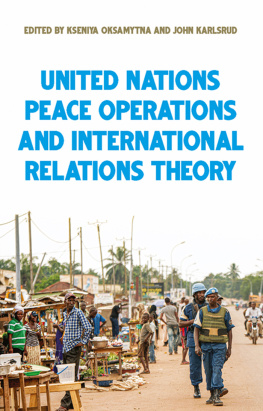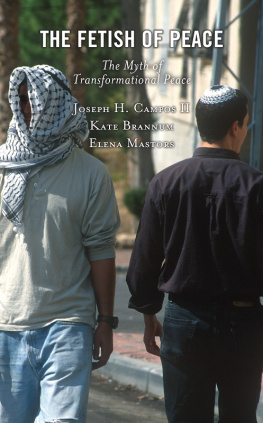This edition first published in 2022
by Routledge
2 Park Square, Milton Park, Abingdon, Oxon OX14 4RN
and by Routledge
605 Third Avenue, New York, NY 10158
Routledge is an imprint of the Taylor & Francis Group, an informa business
First published in 1940 by George Routledge & Sons, Ltd.
All rights reserved. No part of this book may be reprinted or reproduced or utilised in any form or by any electronic, mechanical, or other means, now known or hereafter invented, including photocopying and recording, or in any information storage or retrieval system, without permission in writing from the publishers.
Trademark notice: Product or corporate names may be trademarks or registered trademarks, and are used only for identification and explanation without intent to infringe.
British Library Cataloguing in Publication Data
A catalogue record for this book is available from the British Library
ISBN: 978-1-03-201217-9 (Set)
ISBN: 978-1-00-319367-8 (Set) (ebk)
ISBN: 978-1-03-208122-9 (Volume 40) (hbk)
ISBN: 978-1-03-208130-4 (Volume 40) (pbk)
ISBN: 978-1-00-321305-5 (Volume 40) (ebk)
DOI: 10.4324/9781003213055
Publishers Note
The publisher has gone to great lengths to ensure the quality of this reprint but points out that some imperfections in the original copies may be apparent.
Disclaimer
The publisher has made every effort to trace copyright holders and would welcome correspondence from those they have been unable to trace.
CHAPTER I WAR
B ETWEEN 1914 and 1918 the Great Powers of Europe fought what came to be known as the Great War, and before it ended the two Great Powers outside Europe, the United States of America and Japan, and most of the smaller states of the world had been drawn into it. A world war is a world war; a world war means that all over the habitable globe, in Europe, in the Far East, in central Africa, and around the coasts of the two Americas, human beings kill or try to kill one another. That was, in plain and unadorned language, what people were doing or trying to do on a vast scale in 1918. It is to be presumed that they had, or thought they had, some object in doing so.
The war ended on November 11, 1918, and the world was once more at peace. Twenty-one years later another war broke out between those European Great Powers which had been the protagonist combatants of 1914 to 1918. It is not yet a world war, but it belongs to the category of great wars. This page is being written on the first day of the year 1940. To-day four out of five of the Great Powers of Europe are at war; at the other end of the world, in the Far East, Japan is engaged in a private war of her own, which involves 450,000,000 unfortunate inhabitants of China. Once more, therefore, hundreds of millions of the earths population are engaged, with solemn concentration, in an organized effort to kill one another. The effort is meeting with considerable success, as it has done on previous occasions, and, since the human race is supposed to have a certain amount of reason and intelligence and to have attained a modest standard of civilization, one is forced to assume, at any rate on the first page of a book, that, as in 1914, those who are to-day engaged in this organized effort have, or think they have, an object in making it.
The statements in the last two paragraphs are platitudinous truisms. They sound a little silly. The bare truth, expressed in simple and homely language, such as a man is accustomed to use to his wife, his child, or his dog, nearly always sounds silly in politics and history, but it is none the less true. It is rarely thought of and never stated. The plain, unadorned truths which are the roots of politics and determine history get covered over by the complication of events, obscured by long words, resounding phrases, fierce emotions, the intricate criss-cross of human desires and objects, the cunning of the politician, and the ingenuity of learned theorists. They are nearly always forgotten until it is too late to remember them, but they continue to exist; they are the stark, stupid realities which in the end mainly determine the success of those who remember and the failure of those who forget them.
This book is concerned with international relations and war and peace. It will have to deal with the complicated organization and practice of the relations between states, the tangled history of foreign policy, the fierce emotions of patriotism and nationalism, the intricate objects of national policy, the relation between power and national interests. All these things are relevant to the problem of war and peace, to the question, which is the main subject of this book, whether, when this war ends, it is or is not possible to regulate and organize the relations of Europeans and their states in such a way that periodic great wars become improbable. To-day and during the last twenty-five years the most important element in regulating those relations has been and is war. It is therefore necessary to start from this homely, if stupid, truth about war. War is to-day an organized effort by vast numbers of Europeans to kill one another, and it must be presumed that they have, or think they have, an object in doing this. The question which this book really tries to answer is: What is their object or what do they think it to be, and is war in fact a good method of attaining it? The question is not a simple one; it leads one far afield into history, politics, psychology, and even perhaps philosophy. I am well aware that, like everyone else, I shall be again and again in danger of forgetting, during the argument, what war really is. That is why I wish, both for my own sake and for the sake of the reader, to insist upon this simple truth about the nature of war. Whatever be its cause or its object, it remains an organized effort by vast numbers of human beings to kill one another. Provided that we have got that firmly fixed in our mind, we are in a position to go on to consider whether such action is a necessary or appropriate method of regulating the relations of human beings, organized in nations or states. Let us begin by examining the nature of war a little more closely. War is the supreme instrument of national power, the means by which in the last resort a state tests its power in relation to other states or, in other words, whether it can impose its will upon them by force. The power of states in relation to one another depends upon a large number of different factors, e.g. size of population, extent of territory, geographical position in so far as that may give it strategical or economic advantages or disadvantages, its control of raw materials, the organization of its industries, the capacities and training of its citizens, and the efficiency of its government. The relative power of two states is simply the relative ability of each to impose its will upon the other by force or the threat of force. Suppose you have a state A with a government X and a state B with a government Y; then A is more powerful than B if X can compel Y to do what X desires; B is less powerful than A, if Y cannot do what Y desires owing to X.
The power of one state may in certain circumstances be used hostilely with effect against another without war. Before the war of 1914 the geographical position of Austria gave it considerable power, mainly of an economic nature, over Serbia, and the Austrian government used this economic power on more than one occasion to compel the Serbian government to do, against its own will, the will of the Austrian government. But the ultimate arbiter of national power in the world of states, as we have known it for the last hundred years, has been war, and behind the use of economic power as an instrument of policy in peace has always lain the threat of military force. This was certainly the case as between Serbia and Austria; Austrias economic power over Serbia was always exercised in peace, and was only effective, because behind it was the threat of war, and the great war actually began because the Austrian government decided that the time had come when the threat must be carried out and the final test of power should be made in war. That particular case shows another important fact about national power, namely that it does not depend solely upon the intrinsic possessions, position, qualities, etc., of a state. Its potential power may also depend upon alliances, and a state, like Serbia, which by itself was unable to resist the will of Austria, may with the help of allies not only successfully resist, but destroy its more powerful opponent.


